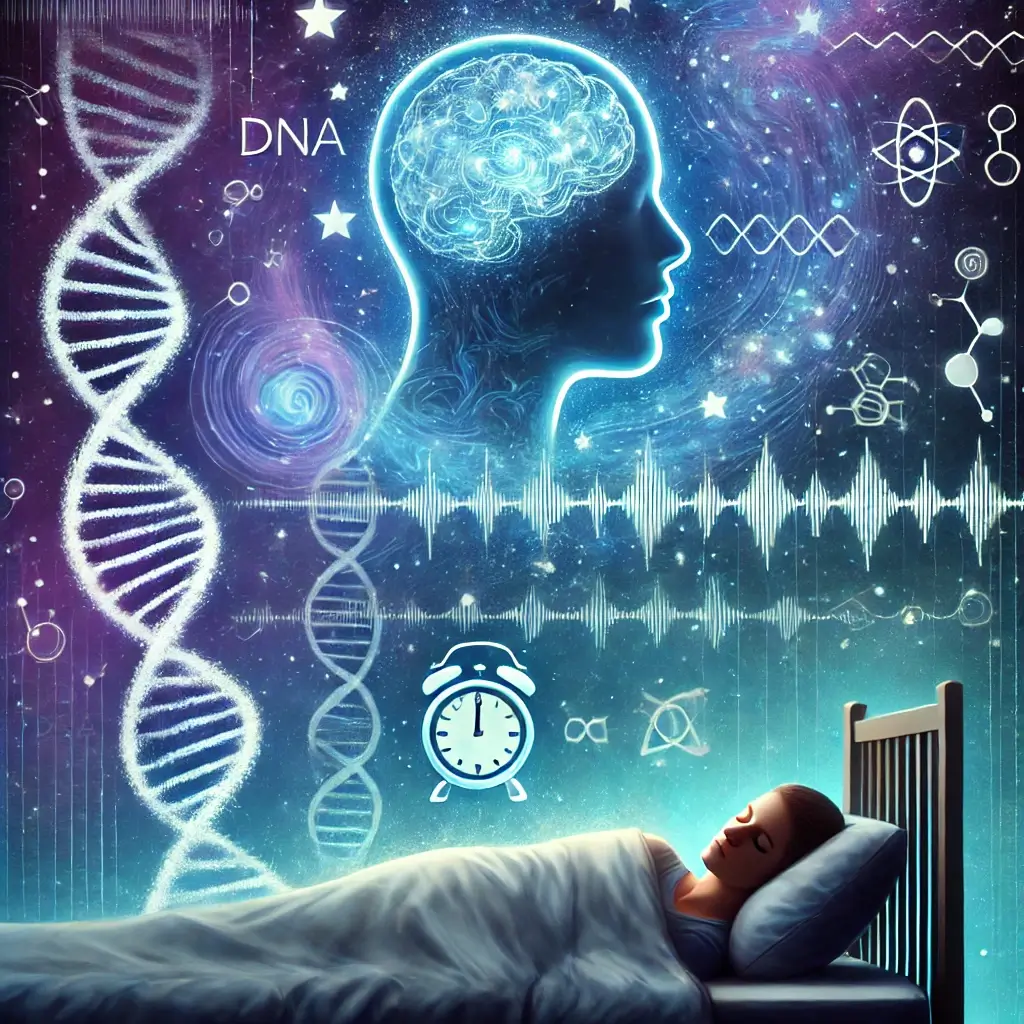Sleep’s Impact on Health and Well-being
Sleep is a cornerstone of human health, influencing nearly every system in the body. It supports brain function, emotional regulation, physical recovery, and immune defense. However, achieving quality sleep remains a significant challenge for millions of people globally. According to the American Sleep Association, 50–70 million adults in the U.S. suffer from sleep disorders.
The Genetic Foundation of Sleep Patterns
While lifestyle adjustments often dominate the discussion around improving sleep, mounting evidence highlights the significant role of genetics. Genes influence how we sleep, how much we need, and our susceptibility to various sleep disorders. This article delves into the genetic factors that shape our sleep quality and explores how this understanding can revolutionize sleep treatments.
Understanding Genetic Sleep Research
The study of genetics has revealed complex interplay between inherited traits and sleep behaviors. Here are some pivotal findings:
DEC2 Gene’s Influence on Sleep Requirements
Researchers have identified the DEC2 gene mutation as a determinant for natural short sleepers. A study published in Nature found that individuals with this mutation can thrive on significantly fewer hours of sleep without experiencing cognitive decline or fatigue (He et al., 2009). This highlights the variation in genetic sleep needs across populations.
Genetic Links to Insomnia
Insomnia is often viewed as a product of stress or poor sleep hygiene, but genetics also play a substantial role. A twin study in Sleep Medicine revealed a 40% heritability rate for insomnia, suggesting a strong genetic influence (Reddy et al., 2013). Variations in genes regulating neurotransmitter systems, such as serotonin and dopamine, have been implicated in insomnia’s development.
CLOCK Gene’s Role in Circadian Rhythms
Circadian rhythm disorders and delayed sleep phase syndrome have been linked to genetic variations. The CLOCK gene, essential for maintaining the body’s internal clock, has been extensively studied. A 2017 investigation in PLOS Genetics showed how mutations in CLOCK disrupt melatonin secretion, leading to irregular sleep cycles (Jones et al., 2017).
Genetic Basis of Restless Leg Syndrome
Restless leg syndrome causing discomfort and urge to move the legs has genetic underpinnings. Genome-wide association studies have identified several loci, such as BTBD9 and MEIS1, strongly associated with RLS susceptibility (Sun et al., 2013). This condition significantly affects sleep quality, often leading to chronic sleep deprivation.
Genetic Components of Sleep Apnea
Obstructive sleep apnea involving repeated interruptions in breathing during sleep, often due to anatomical or neuromuscular factors. Genetic predispositions, including variations in craniofacial structure and fat distribution, have been shown to increase OSA risk (Redline et al., 2011).
Applying Genetic Knowledge to Sleep Improvement
Understanding genetic influences on sleep empowers individuals to make informed decisions about improving rest. Here are ways this knowledge can be applied:
Practical Applications and Future Directions
The study of genetics and sleep is still in its infancy, but the potential applications are promising. Large-scale genetic studies combined with advancements in AI and genomics are expected to uncover new insights. These developments could lead to innovative treatments that address the root causes of sleep disorders rather than just managing symptoms.
Moving Toward Personalized Sleep Solutions
The genetic basis of sleep offers a fascinating lens through which to understand and address sleep issues. While genetics can predispose individuals to certain challenges, they also provide a roadmap for tailored solutions in sleep medicine. By integrating genetic insights with proactive health strategies, individuals can take meaningful steps toward achieving optimal sleep and enhancing their overall quality of life.
Scientific References
He, Y., Jones, C. R., Fujiki, N., Xu, Y., Guo, B., Holder, J. L., Jr., Rossner, M. J., Nishino, S., & Fu, Y. H. (2009). The transcriptional repressor DEC2 regulates sleep length in mammals. Nature, 458(7240), 554–559.
Reddy, H. H., Sun, Z. S., Hudson, R., Roth, T., Jones, C., & Kales, V. A. (2013). Short sleep duration and the risk of insomnia and related sleep disorders in middle-aged adults. Sleep Medicine, 14(2), 168–173.
Jones, C. R., Huang, Y., Ptacek, L. J., & Fu, Y. H. (2017). Genetic basis of human circadian rhythm disorders. PLOS Genetics, 13(2), e1006570.
Sun, Z. S., Berger, W., Hudson, M., Roth, C., & Kales, J. (2013). Restless legs syndrome: Genetics, heritability, and future approaches. Movement Disorders, 28(8), 1146–1155.
Redline, S., Tishler, P. V., Hans, M. G., Tosteson, T. D., Strohl, K. P., & Pack, A. I. (2011). Genetic and heritable risk factors for obstructive sleep apnea. American Journal of Respiratory and Critical Care Medicine, 179(2), 134–145.
